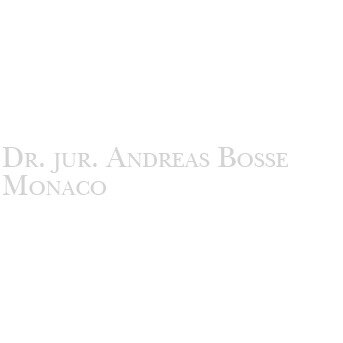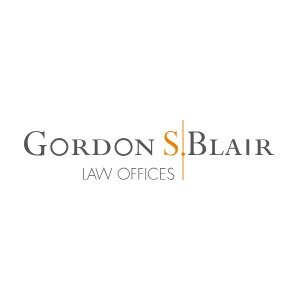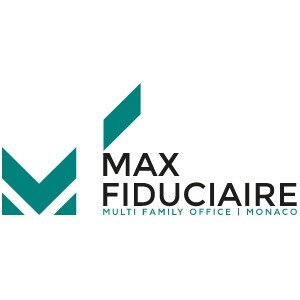Best Estate Planning Lawyers in Monaco
Share your needs with us, get contacted by law firms.
Free. Takes 2 min.
List of the best lawyers in Monaco, Monaco
About Estate Planning Law in Monaco, Monaco
Estate planning in Monaco involves the preparation and arrangement for the management and disposal of a person's estate during their life and after death. This includes making decisions about the distribution of assets, the care of minors, and sometimes the appointment of guardians or trustees. Estate planning is crucial in Monaco, where the local laws and tax regulations can significantly impact the distribution of an estate. Professionals specializing in estate planning can guide residents and expatriates in creating wills, trusts, and other essential documents.
Why You May Need a Lawyer
Estate planning can be complex, especially with the unique legal requirements in Monaco. Here are some common situations where legal assistance is beneficial:
- Drafting and updating wills to ensure they are valid and enforceable under Monaco law.
- Creating trusts to manage assets and protect beneficiaries.
- Navigating the probate process, which can be intricate without professional help.
- Planning for tax implications, ensuring compliance with both local and international tax laws.
- Handling the distribution of assets if you own property or assets in multiple countries.
- Protecting the financial interests of minor children or dependents with special needs.
Local Laws Overview
Estate planning in Monaco is influenced by both Monegasque law and international conventions. Key aspects include:
- Forced Heirship Rules: Monaco's laws mandate that a portion of the estate must be reserved for direct descendants, limiting the extent to which assets can be freely bequeathed.
- Wills: To be valid in Monaco, wills must meet specific formalities and may need to be registered with competent authorities.
- Taxes: While Monaco does not impose inheritance tax, there may be tax obligations in other jurisdictions where assets are located.
- Trusts: The use of trusts is recognized but highly regulated, often requiring professional management.
- Succession Planning: Consideration must be given to both local laws and international treaties to ensure plans are enforceable globally.
Frequently Asked Questions
What is the importance of having a will in Monaco?
A will ensures that your assets are distributed according to your wishes. Without a will, the estate will be distributed according to Monaco's default succession laws, which may not align with your preferences.
How does Monaco's forced heirship law affect my estate planning?
Forced heirship laws in Monaco require that a portion of your estate is reserved for your direct descendants, limiting the amount you can freely distribute to others. This must be considered when drafting a will.
Are there inheritance taxes in Monaco?
Monaco itself does not impose inheritance tax, but taxes may apply in other jurisdictions where assets are held. Professional advice is crucial to navigate these complexities.
Can I use a trust for estate planning in Monaco?
Trusts are recognized and can be a useful tool for estate planning in Monaco, but they are subject to strict regulations and often require professional management.
What happens to my estate if I die without a will?
If you die without a will, your estate will be distributed according to Monaco's intestacy laws, which follow a predetermined order of relatives.
How do I ensure my will is legally valid in Monaco?
To ensure your will is valid, it must comply with Monaco's legal requirements, including proper drafting, witnessing, and sometimes registration with authorities.
Can expatriates living in Monaco use their home country's estate planning documents?
Expatriates should ensure their estate planning documents are valid in Monaco. Consulting a local lawyer can help adapt these documents to meet Monaco's legal standards.
What provisions should I make for my minor children in estate planning?
Consider appointing guardians and setting up trusts to manage and protect assets for minor children until they reach adulthood.
How can I minimize tax liabilities in estate planning?
A lawyer can help develop strategies to minimize tax liabilities, ensuring compliance with both local and international tax laws.
What are the steps involved in probating an estate in Monaco?
The probate process involves validating the will, identifying and appraising assets, paying debts and taxes, and distributing the remaining estate. Legal assistance ensures this process is handled correctly and efficiently.
Additional Resources
For additional information and support, consider the following resources:
- The Monaco Government's website provides official information on local laws and regulations.
- Professional law firms specializing in estate planning can offer personalized guidance and support.
- The Association of Monegasque Estate Lawyers can help you find a qualified lawyer.
- Financial planners and accountants experienced in Monaco's tax laws can also provide crucial advice.
Next Steps
If you need legal assistance in estate planning, consider the following steps:
- Research and select a qualified lawyer specializing in estate planning in Monaco.
- Schedule a consultation to discuss your specific needs and circumstances.
- Prepare relevant documents and information, such as a list of assets, current wills, and any existing estate planning documents.
- Discuss your goals and preferences with your lawyer to develop a comprehensive estate plan.
- Review and finalize your estate planning documents, ensuring they comply with Monaco's legal requirements.
- Regularly update your estate plan to reflect changes in your personal circumstances or relevant laws.
Taking these steps can help ensure that your estate is managed and distributed according to your wishes, providing peace of mind for you and your beneficiaries.
Lawzana helps you find the best lawyers and law firms in Monaco through a curated and pre-screened list of qualified legal professionals. Our platform offers rankings and detailed profiles of attorneys and law firms, allowing you to compare based on practice areas, including Estate Planning, experience, and client feedback.
Each profile includes a description of the firm's areas of practice, client reviews, team members and partners, year of establishment, spoken languages, office locations, contact information, social media presence, and any published articles or resources. Most firms on our platform speak English and are experienced in both local and international legal matters.
Get a quote from top-rated law firms in Monaco, Monaco — quickly, securely, and without unnecessary hassle.
Disclaimer:
The information provided on this page is for general informational purposes only and does not constitute legal advice. While we strive to ensure the accuracy and relevance of the content, legal information may change over time, and interpretations of the law can vary. You should always consult with a qualified legal professional for advice specific to your situation.
We disclaim all liability for actions taken or not taken based on the content of this page. If you believe any information is incorrect or outdated, please contact us, and we will review and update it where appropriate.














